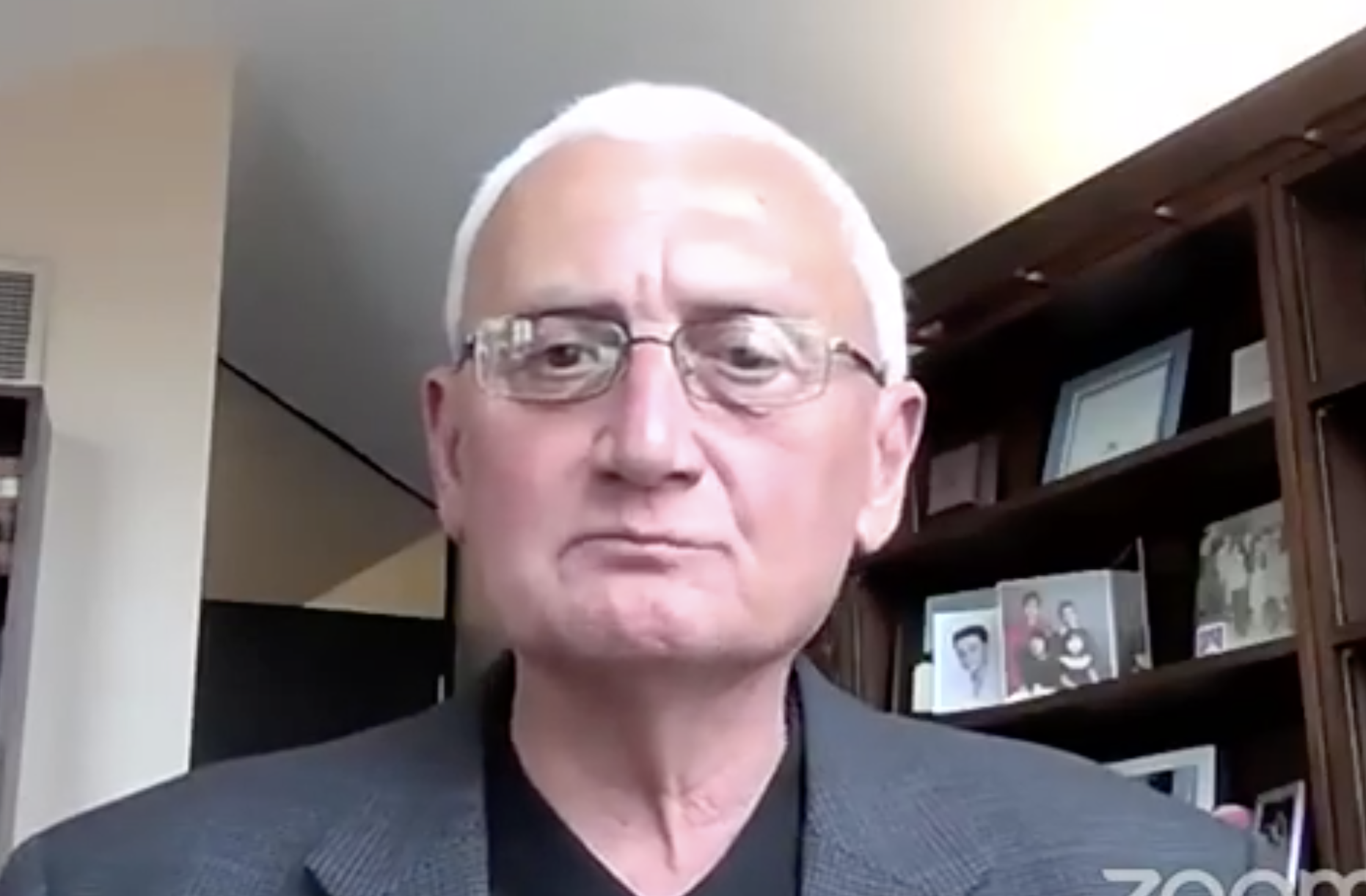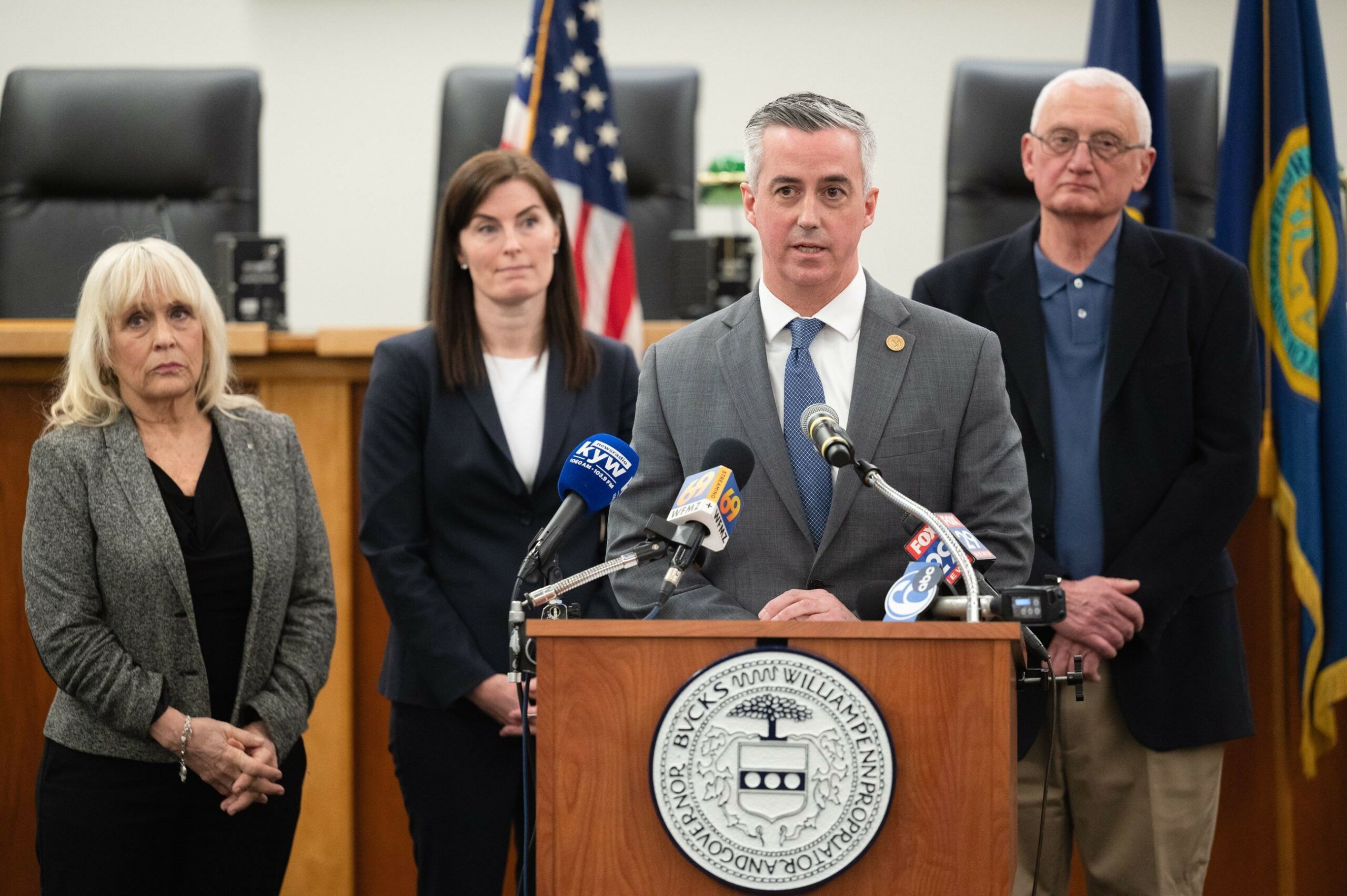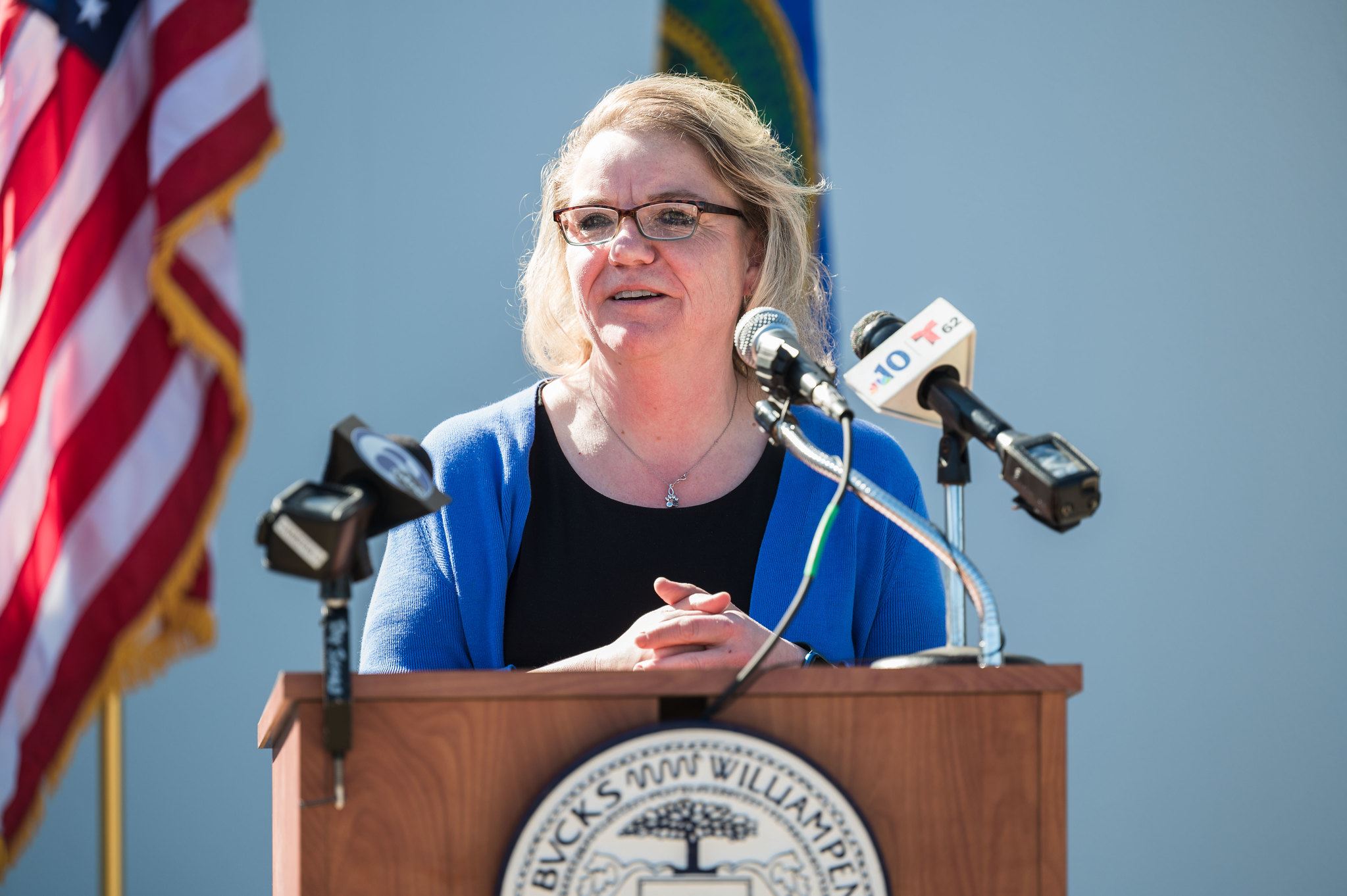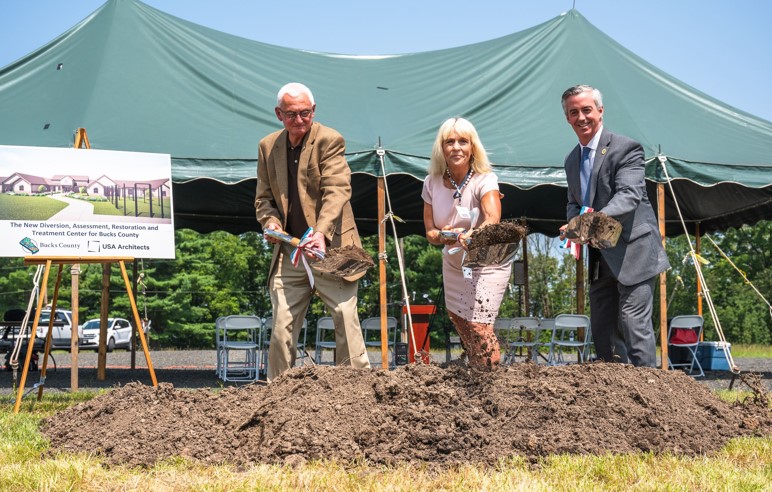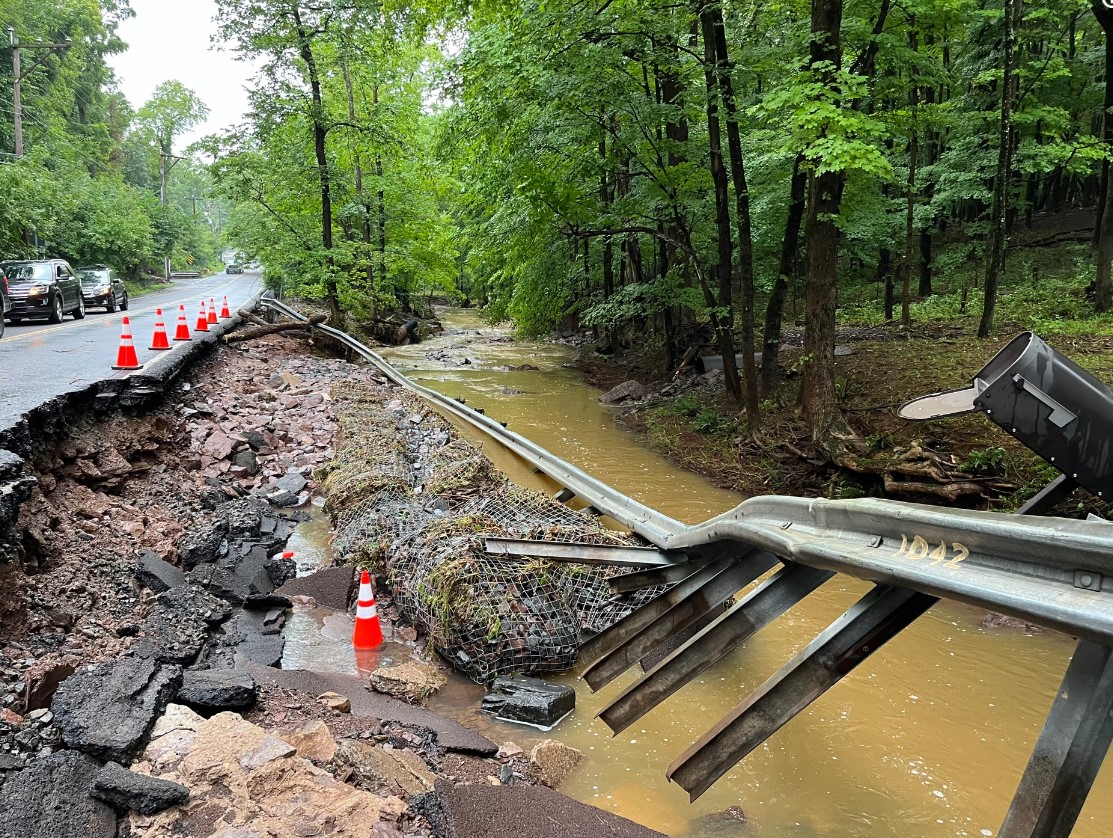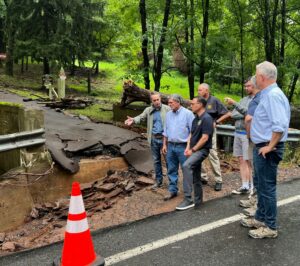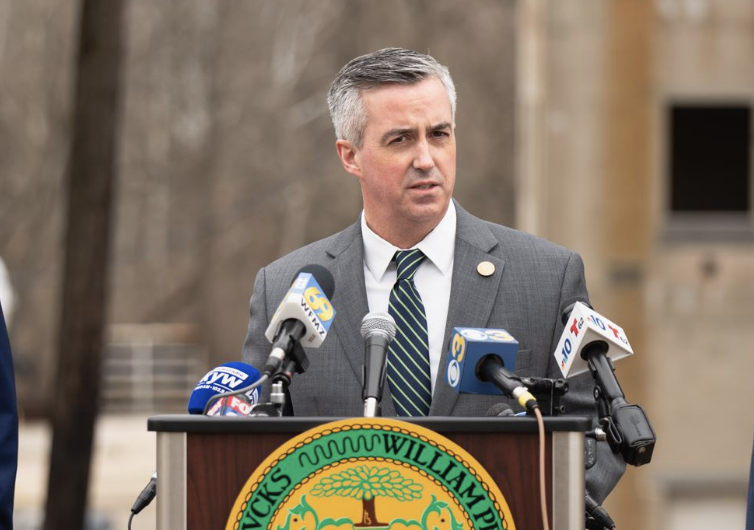
This article first appeared in Broad + Liberty.
The multi-year FBI investigation in Falls Township is digging into whether the township’s administration contributed to or even actively fostered a culture in which unions — and one union in particular — were able to put pressure on local businesses to hire more unionized labor or, if not, face government harassment through permitting delays, according to multiple sources.
Sources who spoke to Broad + Liberty are well placed to have firsthand knowledge of matters related to both the township, as well as the investigation. All requested to speak anonymously out of concerns of retaliation.
Sources confirmed the union side of the investigation is mainly focused on the International Brotherhood of Electrical Workers Local Number 269, based across the river from the township in Trenton, New Jersey. Previous media reports have also indicated that the Local 269 was a focus the investigation.
Previous media reports have also indicated that a federal grand jury has been impaneled on the matter and has been taking testimony, but those reports have not specified the nature of the investigation. Those reports also established that Bucks County Board of Commissioners Chair Bob Harvie, the longtime former chair of Falls Township’s board of supervisors was summoned to testify before the grand jury, raising the specter about whether the ongoing criminal investigation could have an impact on the county’s hotly contested election for county commissioners.
For several years now, two of the township’s longest serving supervisors have been members of IBEW Local 269 — Jeff Dence and Jeff Boraski. But what has seldom, if ever, been reported is the towering influence the IBEW has had over the township through the last dozen years in terms of donations from its federal political action committee to those individuals.
That tally of campaign donations swells even larger if two other township supervisors are included: Bob Harvie and Jeff Rocco. Harvie served as the chairman of the Falls Township Board of Supervisors from 2008 to 2020, according to his online biography. Rocco served on the board from 2012 to 2021. Neither are IBEW members.
Since 2009, the IBEW’s federal PAC (which can donate to local candidates) has given $397,950 to the campaign accounts of those four individuals, according to Federal Election Commission records — a staggering sum for a township of approximately 34,000 persons of whom only 10,500 voted in the most recent general election, and which already has a natural Democratic bent.
The donation figure represents about four-and-a-half percent of all the political money donated by the same IBEW federal PAC to all other Pennsylvania candidates and committees over the same time period, according to a Broad + Liberty analysis of FEC records. Yet, in terms of population, Falls Township represents two-tenths of one percent of Pennsylvania.
The lion’s share of that political money — $214,000 — went to Dence. The rest was mainly split between $80,000 for Harvie and about $76,000 for Boraski.
(The same IBEW PAC has made a small number of donations to others who have served on the Falls Township Board. For example, the IBEW has also made one donation each to Erin Mullen and John Palmer, both of whom are currently serving on the township’s board of supervisors. Some of the donations included in the above tally also include donations made to Harvey while he was running for Bucks County commissioner in 2019 and after.)
The sources indicated the main question in the federal probe was a simple scheme: a business which might be expanding an existing building or starting new construction was approached by someone who urged the business owner to choose union labor. If the business owner refused, various permits needed to keep the project on schedule were held up by the township government.
Broad + Liberty’s sources pointed to one construction project in particular: a massive building project announced in 2015 by KVK Technologies, a specialty pharmaceutical company. In the spring of 2015, the township’s board of supervisors approved a new office and warehouse complex to be built on Cabot Blvd. A request for comment to KVT was not returned or was not successful.
The sources were not able to point to any individual for any specific act, with one exception. That exception is not being published in this story because it was only offered by a single source, and was not independently corroborated by other sources.
Although the investigation has been going on for years including the impaneling of a grand jury in Philadelphia, no indictments have yet been handed up. All persons named in this report are presumed innocent until convicted in a court of law.
The business manager for IBEW Local 269, Steve Aldrich, said the allegations are false.
When asked by phone for the union’s comment, Aldrich said: “Same thing we told the other paper over there in Bucks County, the same thing — the grand jury, there’s nothing. There never has been. We don’t do that s*** here. That’s not how we operate. That’s it. I don’t have any other comments than there’s nothing there and I can’t believe you’re still asking this from 2010. It’s like there’s got to be some other news that you can — to look for. There’s nothing here. I have no idea. You must be bored.”
The sources also indicated that the alleged wrongdoing was a driving factor in the yo-yo-like employment of the township’s former manager, Peter Gray.
Gray proffered his resignation in September 2019, but then rescinded it when the township offered him a retroactive pay raise, according to a report from LevittownNow.com. Four months later, Gray left the township for good and is currently the borough manager for New Hope.
The sources indicated that Gray kept a book or log of some sort that chronicled the alleged activity. That idea is key, as LevittownNow.com has reported a year ago that its own sources said “FBI special agents and prosecutors are in possession of a significant number of documents that went through former township manager Gray’s office.”
In September last year, Levittown Now reported that numerous individuals have testified before the grand jury investigating the matter, including Harvie and Gray.
The township is also dealing with two individuals suing it either over whistleblower claims or allegations that they were asked to perform illegal or unethical acts while in office and were then retaliated against when they objected.
“A fired Falls Township police officer claims in a new lawsuit that he has provided information to the FBI as part of an ongoing investigation involving the municipality’s government,” said a LevittownNow.com report from January. “He also says he was wrongfully terminated by township officials because he is a whistleblower.”
In 2020, the township’s former code enforcement officer quit and later filed suit, alleging he had been asked by township officials to manipulate an inspection of a specific home. The allegations in the suit are contained to that incident, and seem unlikely to weigh on the FBI investigation.
The IBEW’s interest in Falls Township, as evidenced by its campaign donations, matches a time when the union seemed to be growing its influence in southeast Pennsylvania by leaps and bounds.
Through most of the second decade, the IBEW looked ascendant in the region, emblemized by John Dougherty, the business manager of the IBEW Local 98, based in Philadelphia. Dougherty, more commonly known by the nickname “Johnny Doc” was indisputably one of the most influential political power brokers in the region until he was indicted by the federal government in 2019.
The apex of Dougherty’s influence was on vivid display in 2015, when he marshaled more than $1.5 million in direct and in-kind donations to his brother’s successful run for the Pennsylvania State Supreme Court — an election that helped swing the balance of power at the top court and continues to reverberate politically to this day.
Dougherty also single-handedly funded the election of Bobby Henon, an IBEW member who served for ten years as a member of Philadelphia’s City Council. Henon was charged along with Dougherty with corruption charges in 2019. He was convicted and is currently serving a three-and-a-half years term in federal prison.
Falls Township has an established Democratic political bent, based on election results dating back more than a decade.
For example, in the hotly contested 2010 U.S. Senate election between Democrat Joe Sestak and Republican Pat Toomey, Sestak easily carried Falls Township 6,000 to 4,200. Statewide, Toomey eked out a 51-49 win in a Republican wave year.
Four of the five current members of the elected board of supervisors are Democrats.
None of the current members of the Falls Township Board of Supervisors, including Dence and Boraski, responded to a request for comment. Former members of the board, including Commissioner Harvie and Rocco, did not respond to a request for comment. For this outreach, Broad + Liberty used Falls Township government email addresses, personal emails gleaned from campaign finance reports, as well as text messages sent to phone numbers also taken from campaign finance reports.
A request for comment was also not returned from the IBEW national office in Washington D.C. which controls the PAC mentioned in this story, or from the U.S. Department of Justice.
Sources with further information on any aspect of this story — governance in Falls Township, knowledge of union activities in the township, etc — are encouraged to reach out to this reporter at shepherdreports@protonmail.com, confidentiality assured.




